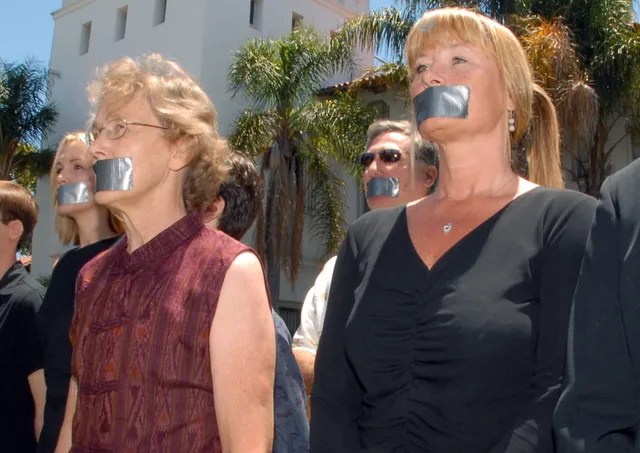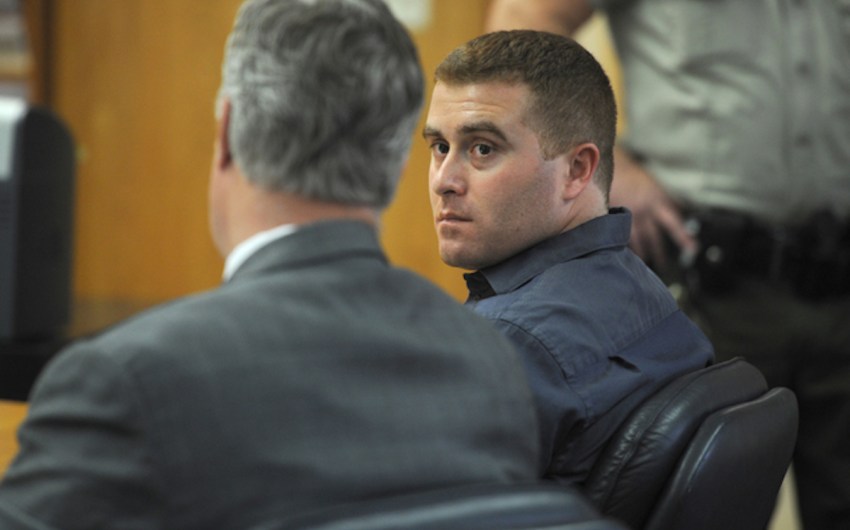Owner of Bankrupt ‘Santa Barbara News-Press’ Found in Contempt of Court
U.S. Magistrate Finds Wendy McCaw's Ampersand Publishing Bargained in Bad Faith

Wendy McCaw, owner of the now-bankrupt Santa Barbara News-Press, today was found in contempt of a U.S. District Court judgment dating to 2017. The fight between the daily paper’s owner and the union the employees organized continues to trail clouds of legal documents, the most recent issued on July 26 by U.S. Magistrate G. Michael Harvey of the D.C. District Court. He found the News-Press‘s parent company, Ampersand Publishing LLC, in civil contempt of the judgment imposed in 2017 in favor of the National Labor Relations Board.
Santa Barbara’s daily paper for roughly 150 years, the News-Press was bought by McCaw in 2000 from the New York Times Corporation, but by 2006 the employees and much of the Santa Barbara community were united in a boycott of the paper over publisher McCaw’s interference in news reporting. Editors walked out, subscriptions were canceled, and reporters were fired, but a vote for a union prevailed in 2006. Things went downhill from there.
In his 71-page Report and Recommendation, Judge Harvey, who was appointed Special Master in 2021 to oversee an adjudication of the mess, outlines in exacting detail the dates made, kept, broken, ignored, and postponed in the marathon negotiations between Ampersand’s chief bargaining agent, attorney Christopher Frost, and his counterpart for the union — the Graphic Communications Conference, International Brotherhood of Teamsters — business agent Nicholas Caruso.
Harvey’s careful recitation, replete with footnotes identifying opposing views and the judge’s decisions thereon, determined that Ampersand’s actions after the D.C. Circuit Judgment came out in 2017 in favor of the National Labor Relations Board (NLRB) — representing the interests of employees and the union — were demonstrably unfair and in bad faith. He notes that it took between 53 days and 20 months between the time Caruso would request information and Frost would respond, when two weeks was found to be excessive in past cases. Some of the documents Caruso requested repeatedly were financial ones to back up Ampersand’s “claims of poverty” such that it could not pay the merit pay increases or health-care insurance premiums — those took 16 months to produce.
Ultimately, the National Labor Relations Board (NLRB) is to submit in writing a list of the total costs of the remedies sought. Because Ampersand is now in Chapter 7 bankruptcy proceedings, only monetary remedies make sense. These remedies go to making union employees whole for “losses suffered as a result of Ampersand’s unilateral changes in their terms and conditions of employment,” which includes the loss of merit pay increases and health-care benefit changes. The NLRB’s costs, expenses, and reasonable attorney’s fees are also among the recoverable costs, as are the union’s costs and expenses in bargaining from 2017 onward. (The pre-2017 monies owed to employees and the union are in excess of $3.5 million.)
One interesting decision Harvey makes is during his discussion of the time period for the violations. He notes that although merit pay was not made in 2006, 2007, and 2008, the judgment in question only begins in 2017. He cites a 1941 case in regard to Ampersand’s unfair labor practices of delay in providing information and making meetings. In the case between the NLRB and Express Publishing Company, the company conduct in the past anticipates the danger it will commit the same again, the Fifth Circuit found. Also, in 2012, the NLRB found that a broad cease-and-desist order was warranted because “it had been established both that [Ampersand] had a ‘proclivity to violate the Act’ [the NLRA] and had engaged in ‘widespread’ and ‘egregious’ violations of the statute. “Most importantly, the D.C. Circuit enforced the NLRB’s order, which included that expansive language,” Judge Harvey stated.
Delay marks Ampersand’s bankruptcy case, as well. The testimony of the company’s accountant has been continued six times. The liquidation of its tangible archive and other assets has yet to take place, despite the bankruptcy being filed one year ago, in part over standoffs about access to the historic building on De la Guerra Plaza and the printing press plant in Goleta. This led to a contempt motion that has since been resolved. For a company that claimed it had $500 in the bank when it went under in 2023, the only remaining assets might be the two buildings, the ownership of which is being hotly contested in the bankruptcy case.
In the NLRB case, Judge Harvey directed that the petitioner, Ampersand, may file objections to the Report and has 20 days in which to do so.










